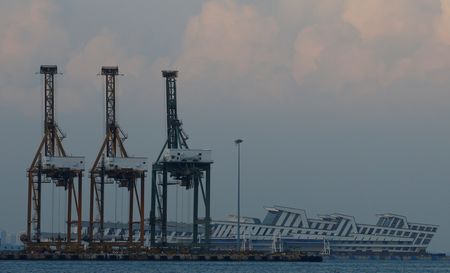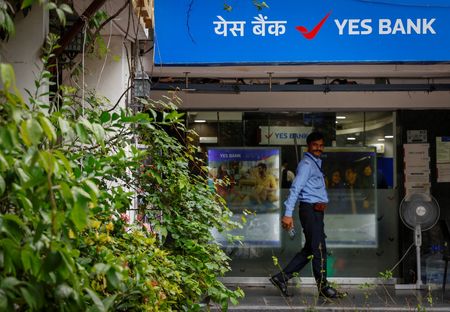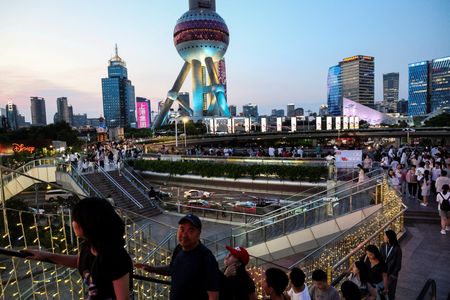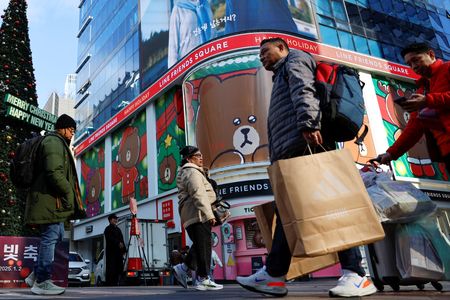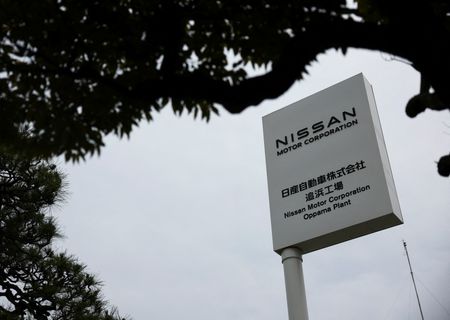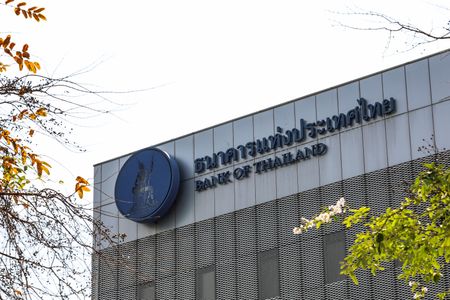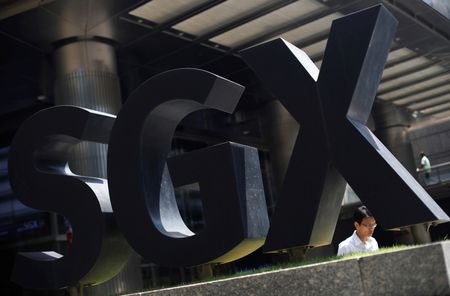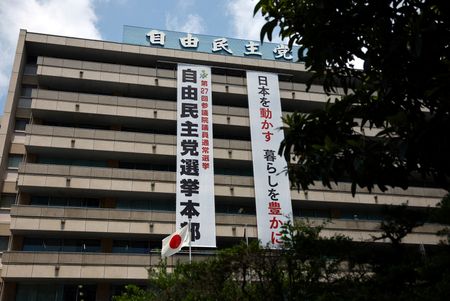By Jeslyn Lerh
SINGAPORE (Reuters) -Lacklustre fuel demand at top global ship refuelling hub Singapore is squeezing margins for bunker suppliers and prompting some to pare back barge operations, industry sources said.
Marine fuel sales in key refuelling ports globally have slowed this year as the shipping sector grapples with uncertainty over geopolitics and trade tariffs, depressing bunker prices and making it less economical to operate fuel barges.
Typically, bunker fuel delivered from barges in Singapore must be sold at least $7 a metric ton above the ex-wharf price for oil supplied from terminals to break even, however, the spread has narrowed below $4 this year for both low-sulphur and high-sulphur marine fuel grades, trade sources said.
TFG Marine, majority-owned by Trafigura, is operating three to five barges in Singapore compared with nine barges last year, according to five industry sources. The company is focusing on ex-wharf trade instead of direct delivery to ships, they said.
Trafigura declined to comment.
Prices of high-sulphur marine fuel have been depressed by plentiful supplies, while premiums for low-sulphur supplies have been stuck in a narrow range since the start of the year.
“It has been an extended period of pain for physical suppliers this year,” a Singapore-based bunker trading executive said. “Suppliers can’t stop doing physical sales completely so the short-term remedy is to release barges,” he said.
Sinopec Fuel Oil, which operates about 10 barges in Singapore, has trimmed vessels leased under contract of affreightment (COA) to 1-2 per month, down from 2-3 previously, as volumes dipped, while keeping the number of barges under time charter (TC) stable, a source with knowledge of the matter said.
Under COA, shipowners retain control over vessels and are committed to delivering a certain number of cargoes, while TCs give charters the control over ships.
Separately, SK Energy plans to reduce its Singapore barge fleet later this year, two sources familiar with the matter said. The sources declined to be named as they were not authorised to speak to media.
Sinopec did not respond to a request for comment. SK Energy declined to comment.
The scaling back comes as the number of barges, or bunker tankers, in Singapore rose to 214 in February, up from 206 last May, official data showed.
“The total number of barges has increased this year with some companies bringing in newly-built ones … but demand is so stagnant this year, premiums are so bad, that many people are giving up barges,” a trader from a Singapore-based bunker supplier said.
Bunker fuel sales in Singapore dipped to 26.98 million metric tons (940,000 barrels per day) in the first half of 2025, down 1% on year, official data showed.
(Reporting by Jeslyn Lerh; Editing by Florence Tan, Tony Munroe and Michael Perry)

